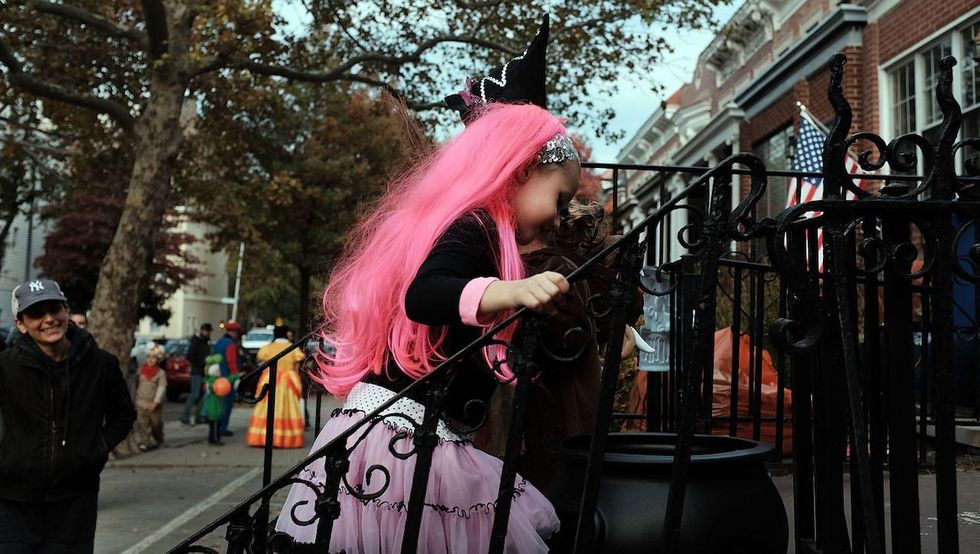
Tens of thousands have signed a petition to move Halloween from Oct. 31 to the last Saturday in October.(Spencer Platt/Getty Images)

Tens of thousands of people have signed a petition asking the White House to change Halloween to the last Saturday of October.
Petitioners argue that moving Halloween from Oct. 31 to the last Saturday of the month would make it safer for children and less stressful for parents. The Change.org petition started by the Halloween and Costume Association has garnered more than 42,000 signatures.
Typically, children begin trick-or-treating for candy at dusk, but those who favor the move believe kids could get out before dark and stay out longer.
"You could start things earlier, or they could go longer and maybe it wouldn't all be at nighttime when it's completely dark," Cassandra Stone, who wrote about the movement on the website "Scary Mommy," told CBS News.
A majority of parents don't accompany their children during trick-or-treating, according to the Halloween and Costume Association.
The organization also estimates that there are more than 3,800 Halloween-related injuries each year.
"Children are more than twice as likely to be hit by a car and killed on Halloween," according to statistics published on the association's website.
In the 1960s, Congress moved the observance of George Washington's birthday and Labor Day to Mondays for the sake of making it more convenient to observe.
Both are federal holidays, whereas Halloween and likely won't become one, according to author and historian Kenneth C. Davis.
"It's very expensive for the federal government to declare a federal holiday," Davis told CBS. "So I don't see any time soon a new holiday for Halloween."
The origins of Halloween date back nearly 2,000 years ago to the Celts who lived in Ireland, Time explained.
It was part of an ancient three-day festival known as "Samhain," which marked the harvest season and beginning of winter, the darker half of the year.
On Oct. 31, "All Hallows' Eve," farmers believed the spirits of the dead would rise from their graves.
The following day was "All Hallows Day," also known as All Saints' Day, which is a holy day for Christians to honor martyrs and saints. It was originally in May but it was moved to Nov. 1 during the 8th century.
Immigrants in the 17th, 18th, and 19th centuries brought their Celtic traditions with them to America.
Eventually, All Hallows' Eve became more secular and turned into the popular tradition of handing out candy to those dressed in costumes.